-
#525 – The Flight that Disappeared (1961)
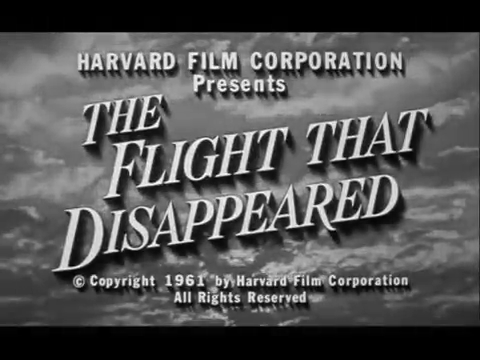
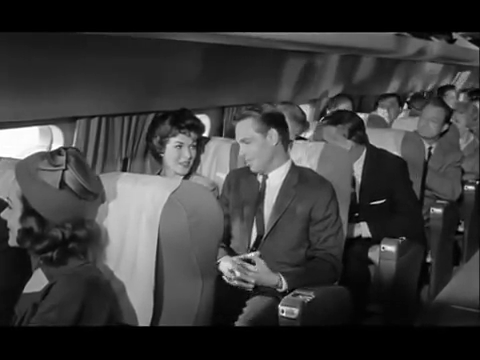
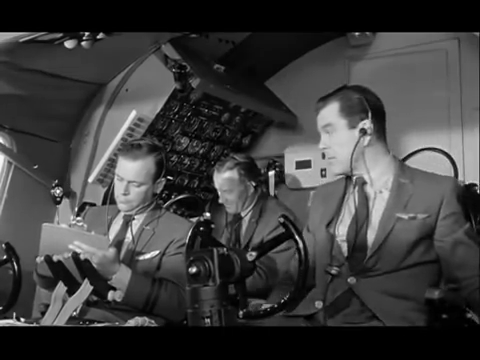
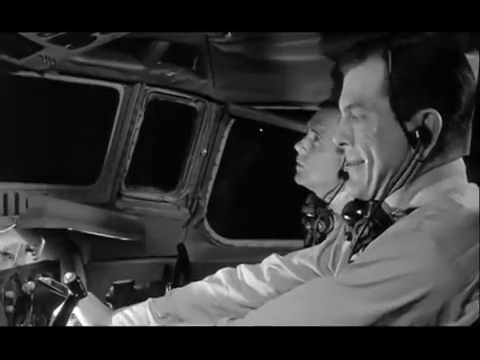
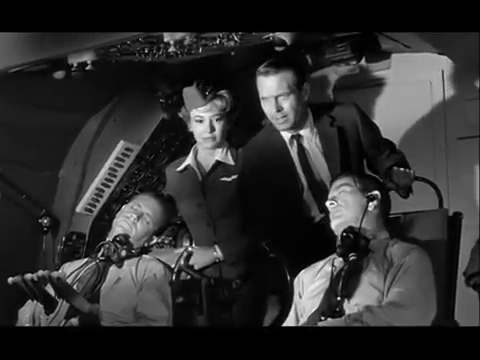
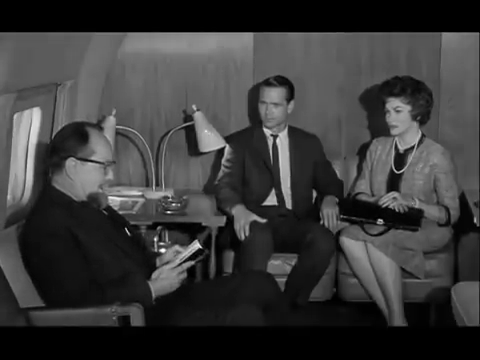
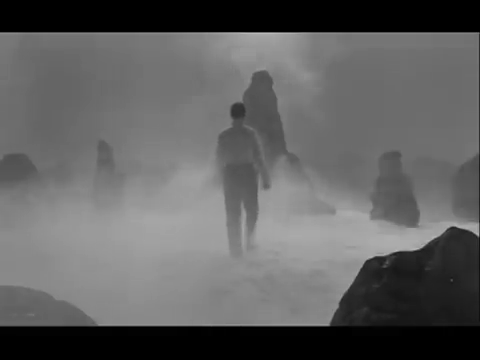
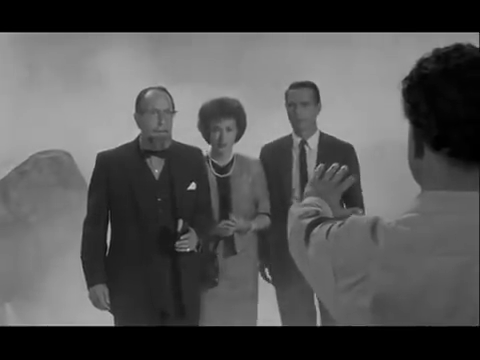
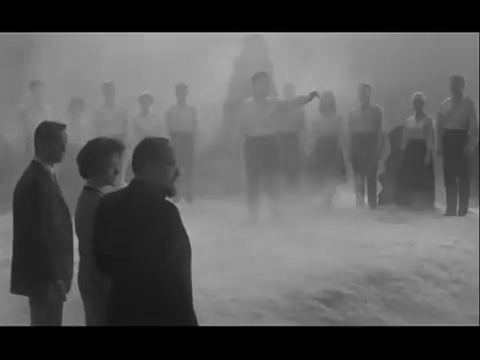
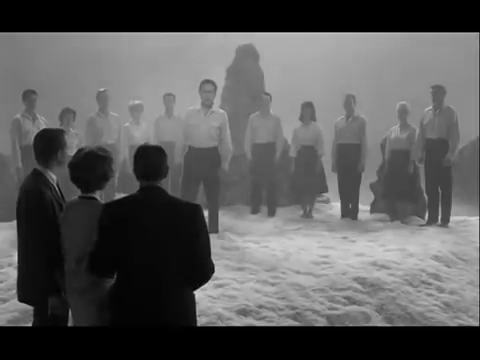
The Flight that Disappeared (1961)
Film review #525
Director: Reginald LeBorg
SYNOPSIS: A commercial flight to Washington D.C. starts to gain altitude uncontrollably, eventually losing contact with the ground. Among the passengers are three top scientists, who have been summoned to the Pentagon for a meeting, and eventually the only ones who are left conscious as the aircraft continues to ascend…
THOUGHTS/ANALYSIS: The Flight that Disappeared is a 1961 film. The plot concerns a commercial flight to Washington D.C. that continues to gain altitude as the pilots lose control and radio contact with the surface ceases. The build-up of the mystery is fairly interesting, and it certainly makes you wonder where it is all going: there’s no evidence of any sci-fi or extraordinary influences, so it does keep you guessing as to what is actually happening. The cast is introduced with enough detail to set the scene well, although what turn out to be the three main characters, the scientists, Dr. Carl Morris, Tom Endicott, and Marcia Paxton, aren’t very apparent until a good portion of the film, which again helps with the mystery, but also leaves the film a bit directionless. The three main characters are unknown to each other when they board, but learn that they are all there for the same reason: to attend a secret meeting at the Pentagon for the development of a new “beta bomb,” a weapon more powerful than the atom bomb. There’s a passenger on the plane who tries to talk to them individually, saying that they must use their weapon on enemy countries with a pre-emptive strike, but the scientists are insistent that it is a weapon to only be used in self-defense or retaliation. The plot, as you can probably tell, is rooted firmly in cold war era politics, although it doesn’t contribute to the mystery too much. While the film does a lot to set up the scene and the people aboard the flight, it is let down by the fact that there’s barely any personality between them, and nothing really happens in the first part of the film.
It turns out the three scientists have been summoned to a trial of sorts by the people of the future who have yet to be born, and probably will never be, if their weapon is allowed to be built and used. The film quickly jumps here from nothing happening, to a bit too much happening: we’re not given any set up for this whole trial and having to face people from the future, and it is all a bit sudden. I feel like the message gets increasingly muddled as well in this part, as the future not born people (whatever we are calling them…) accuse the scientists of being guilty because they conceived the idea of these weapons, and despite opposing their use in anything other than self defense. Is the film’s message essentially seems to be that having a bad idea makes you guilty, whereas the person or politician that uses it is simply a bureaucrat following orders and ticking boxes. There’s something about the whole message here that seems a bit off. I appreciate that the film does look at the moral quandaries it raises with a good amount of depth, but the overall conclusion just seems a bit weird; holding oneself morally accountable to people that have not or may never be born just seems a bit misguided to me.
Despite the film being an independent production, it is made quite well: the airplane where most of the film is set is a set, but it is pretty convincing and accurate. Overall, The Flight that Disappeared has an interesting mystery, but is bogged down by dull characters, and slow pacing at the beginning. The resolution and messaging is also muddled, but it does at least explore it’s subject in some depth. It probably would have been at home as an episode of The Twilight Zone, and certainly fits that tradition of 60′s science-fiction.